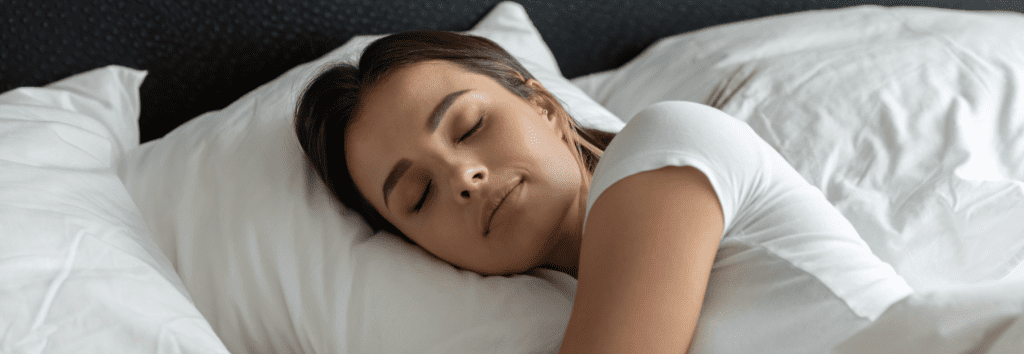The Importance of Sleep and Tips for Better Sleep Hygiene

In the hustle and bustle of modern life, sleep often takes a backseat to the demands of work, social obligations, and digital entertainment. However, neglecting sleep can have profound effects on our health, productivity, and overall quality of life. This article delves into the importance of sleep and provides practical tips for improving sleep hygiene, ensuring that you wake up refreshed and ready to tackle the day ahead.
Understanding the Role of Sleep
Sleep is not just a passive state of rest but a vital, active process that supports numerous functions critical to our well-being.
Physical Health
During sleep, the body undergoes repair and rejuvenation, healing tissues, and bolstering the immune system, which is essential for preventing illness.
Mental Well-being
Sleep plays a crucial role in cognitive functions, including memory consolidation, learning, and emotional regulation, impacting our mood and mental health.
The Consequences of Sleep Deprivation
Chronic lack of sleep can lead to a host of problems, underscoring the need to prioritize quality rest.
Impaired Cognitive Function
Lack of sleep can diminish concentration, decision-making abilities, and creativity, making daily tasks more challenging.
Increased Health Risks
Sleep deprivation is linked to a higher risk of chronic conditions such as obesity, diabetes, cardiovascular disease, and mental health disorders.
Principles of Sleep Hygiene
Sleep hygiene refers to the practices and habits that are conducive to sleeping well on a regular basis.
Consistent Sleep Schedule
Going to bed and waking up at the same time every day, even on weekends, helps regulate your body’s internal clock and improve sleep quality.
Optimizing the Sleep Environment
Create a restful environment in your bedroom by keeping it cool, quiet, and dark, and investing in a comfortable mattress and pillows.
The Impact of Diet and Exercise
What you eat and how you move can significantly influence your sleep patterns and quality.
Balanced Diet
A balanced diet, rich in fruits, vegetables, and lean proteins, can promote better sleep, while heavy or rich meals before bedtime may lead to discomfort and restlessness.
Regular Exercise
Regular, moderate exercise can help you fall asleep faster and enjoy deeper sleep, but avoid vigorous workouts close to bedtime as they can have the opposite effect.
Navigating Caffeine and Alcohol
Stimulants and depressants can wreak havoc on your sleep cycle, so it’s important to consume them mindfully.
Caffeine
Limit caffeine intake in the afternoon and evening, as it can interfere with the ability to fall asleep and reduce sleep quality.
Alcohol
While alcohol may initially induce drowsiness, it can disrupt sleep later in the night, leading to fragmented, non-restorative rest.
The Role of Technology in Sleep Disruption
Electronic devices can significantly impact sleep hygiene due to their stimulating effects and the blue light they emit.
Screen Time
Limit exposure to screens at least an hour before bedtime to reduce the blue light’s impact on your sleep-wake cycle.
Tech-Free Bedroom
Consider keeping your bedroom a tech-free zone, or use blue light filters on devices if use before bed is unavoidable.
Establishing a Pre-Bedtime Routine
A calming pre-bedtime routine can signal to your body that it’s time to wind down, making it easier to fall asleep.
Relaxation Techniques
Incorporate relaxation techniques such as reading, taking a warm bath, or practicing gentle yoga or meditation to ease the transition to sleep.
Disconnecting from Stressors
Avoid stressful activities or discussions before bedtime, as they can increase alertness and make it difficult to fall asleep.
Managing Nighttime Wakefulness
Waking up in the middle of the night can be frustrating, but how you handle it can affect your ability to return to sleep.
Stay Calm
If you wake up during the night, avoid watching the clock or stressing about not sleeping, as anxiety can further impede your ability to fall back asleep.
Quiet, Low-Light Activities
If you can’t fall back asleep within 20 minutes, engage in a quiet, low-light activity until you feel drowsy again.
Seeking Professional Help
If sleep problems persist despite improving your sleep hygiene, it may be time to consult a healthcare professional.
Identifying Underlying Conditions
Sleep disorders such as insomnia, sleep apnea, and restless legs syndrome require professional diagnosis and treatment.
Cognitive-Behavioral Therapy for Insomnia (CBT-I)
CBT-I is an effective treatment for insomnia, helping to address the thoughts and behaviors that contribute to sleep difficulties.
Conclusion
Sleep is a foundational pillar of health, influencing every aspect of our well-being. By adopting good sleep hygiene practices, you can enhance the quality of your rest, improve your health, and boost your daily performance. Remember, creating a conducive sleep environment, maintaining a consistent sleep schedule, and being mindful of diet and exercise can all contribute to a better night’s rest. If sleep problems persist, don’t hesitate to seek professional advice, as effective solutions are available to help you achieve the restorative sleep you deserve.